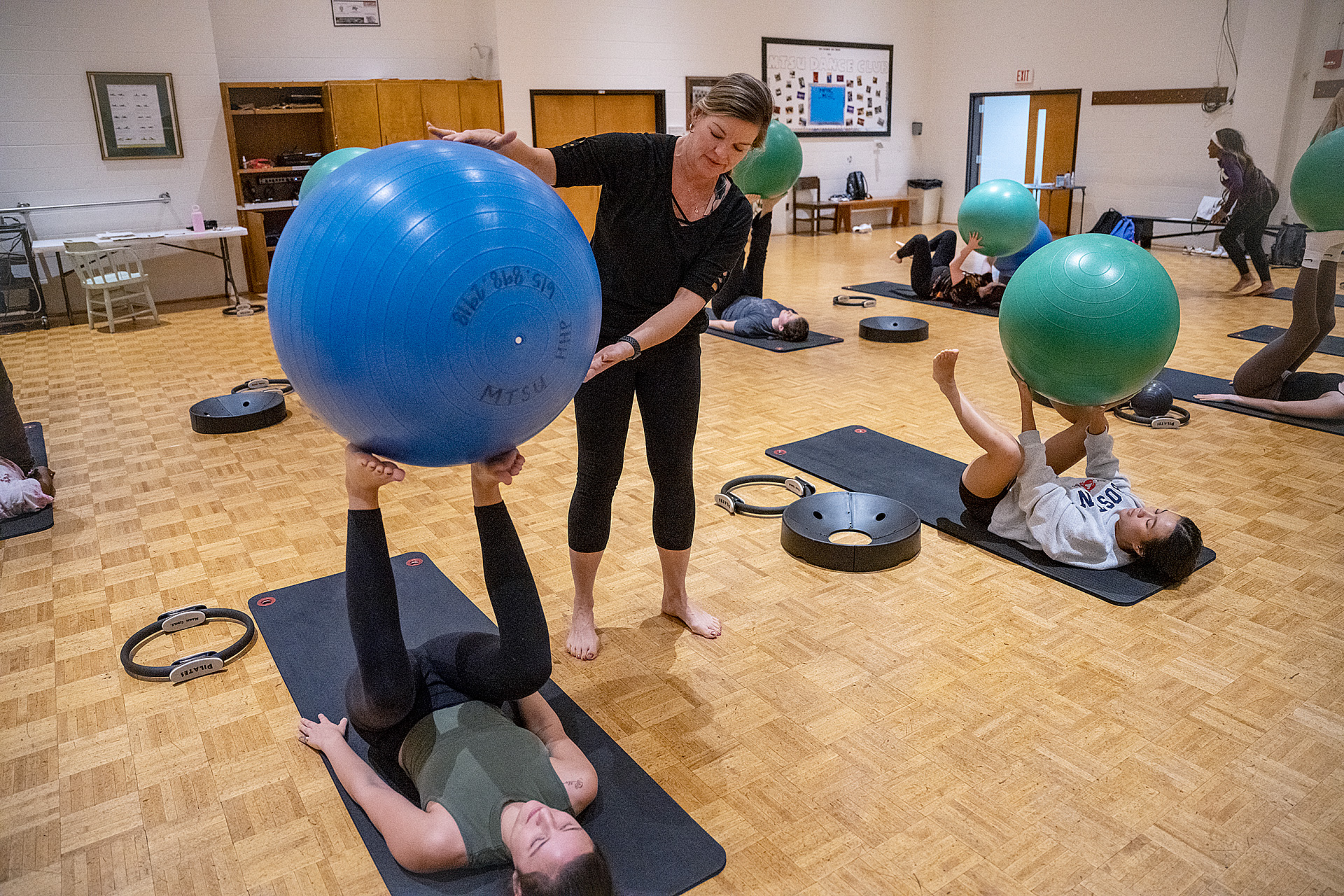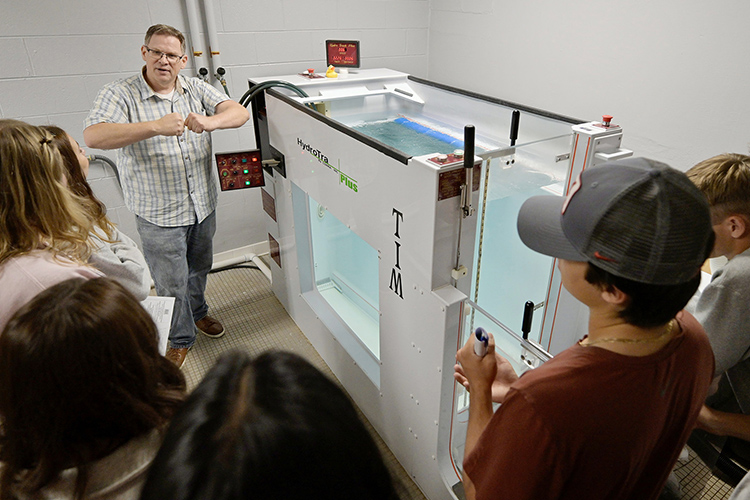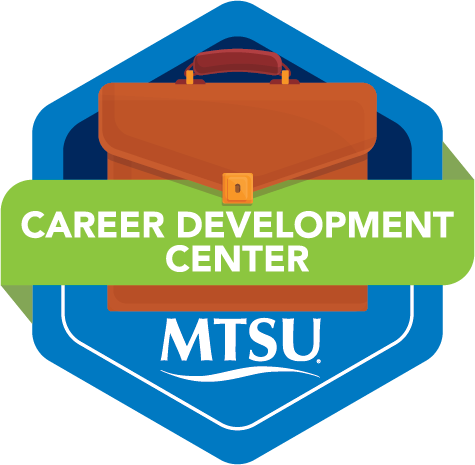
Physical Education
Improve the fitness and health of students as you explore diverse teaching environments in sports and physical activity.
Physical Education, Sport Pedagogy Concentration, B.S.
The Sport Pedagogy Concentration in the Bachelor of Science in Physical Education is offered by the College of Behavioral and Health Sciences at MTSU. The Sports Pedagogy concentration, broadly defined as the delivery of sports and physical activity, offers students the opportunity to work within a wider range of teaching environments (i.e., coaching, officiating, recreation, dance, and fitness).
The Sport Pedagogy concentration will serve as an opportunity for those who have movement skills and instructional ambitions to pursue a physical education degree option. This concentration will not lead to teacher certification; however, it may be combined with several options for a minor (e.g., athletic coaching, dance, somatic movement) providing students the expertise to be employed in a wider variety of related fields. If you want a career in which you can enjoy sports and physical activity, and give back to children or youth through teaching or coaching while fulfilling a critical role in helping people achieve a quality level of health, fitness, and skill, MTSU's Physical Education program is right for you.
News Briefs

Williamson County high schoolers explore health and human performance degree paths at MTSU
Career and technical education students from Williamson County high schools got a first-rate tour of Department of Health and Human Performance facilities in the College of Behavioral and Health Sciences at Middle Tennessee State University recently. The students enrolled in exercise and health sciences classes at Fairview, Ravenwood and Nolensville high schools learned about potential [ Read More ]
News Briefs

Williamson County high schoolers explore health and human performance degree paths at MTSU
Career and technical education students from Williamson County high schools got a first-rate tour of Department of Health and Human Performance facilities in the College of Behavioral and Health Sciences at Middle Tennessee State University recently. The students enrolled in exercise and health sciences classes at Fairview, Ravenwood and Nolensville high schools learned about potential [ Read More ]
Related Media

Physical Education, Sport Pedagogy Concentration, B.S.
Physical Education graduates put their skills and knowledge to use in a variety of professions ranging from teaching in various settings to working as therapists to managing others in the field. A variety of examples follow:
Individuals who enter the teaching field are usually offered the option to coach in most schools or districts.
- Elementary physical education teacher
- Middle school physical education teacher
- High school physical education teacher
Physical Education graduates have been hired by school districts all across Tennessee and in surrounding states.
Physical Education graduates have opportunities in various other fields.
Fitness/Health Centers
- Aerobics instructor
- Athletic clubs/center director
- Corporate fitness center manager
- Fitness trainer
- Health or fitness club manager
- Personal fitness trainer
- Somatics instructor
- Strength trainer
- Stress management consultant
- Weight management consultant
Recreation Careers
- Activities instructor
- Aquatics specialist
- Camp instructor/park ranger
- Commercial recreation instructor
- Correctional facilities recreation director
- Dance studio director/instructor
- Facility manager
- Intramural/recreational sports director
- Private clubs' fitness instructor
- Resort activities instructor
- Sports club instructor
- Sports tour operator
- Veterans' hospital recreation director
- Wilderness therapy program director
- YMCA/YWCA activities instructor
Therapy-Related Careers
- Dance therapist
- Movement therapist
- Physical therapist
- Recreational therapist
Coaching/Officiating
- Youth sports
- Interscholastic school sports
- Collegiate sports
- Adult recreation
Other Related Careers
- Emergency services personnel instructor
- Military physical education specialist
- Professional dancer
- Protective services personnel instructor
Professional Associations/Organizations
- Administrative assistant
- Assistant director of administration
- Associate executive director
- Director of communications
- Executive director
- Meeting and event coordinator
- Membership coordinator

MTSU’s Career Development Center
MTSU offers a comprehensive Career Development Center that serves students throughout the full student experience and beyond. They collaborate with faculty and staff to equip students with the tools to be marketable to the world of work and continuing education.
Students can schedule an appointment or check online resources and job boards at mtsu.edu/career.
Students can find current internship opportunities by talking to faculty and visiting the University job and internship board called Handshake.
Wondering what you can do with your major? Check out our What Can I Do with A Major In guides.

Physical Education, Sport Pedagogy Concentration, B.S.
Don Belcher, program coordinator
615-898-2904
Don.Belcher@mtsu.edu
The Sport Pedagogy concentration will serve as an opportunity for those who have movement skill and instructional ambitions to pursue a physical education degree option. This concentration will not lead to teacher certification; however, it may be combined with several options for a minor (e.g., athletic coaching, dance, somatic movement) providing students the expertise to be employed in a wider variety of related fields.
Academic Map
Following is a printable, suggested four-year schedule of courses:
Degree Requirements
| True Blue Core (TBC) | 41 hours |
| Major Requirement | 54 hours |
| Minor | 15-18 hours |
| Electives | 7-10 hours |
| TOTAL | 120 hours |
True Blue Core (41 hours)
requirements (shown in curricular listings below) include courses in the Foundational Skills areas of Written Communication (WC), Information Literacy (Info Lit), Non-Written Communication (NWC), and Quantitative Literacy (Quant Lit). Knowledge Domains include Human Society and Social Relationships (HSSR), Scientific Literacy (Sci Lit), Creativity and Cultural Expression (CCE), and History and Civic Learning (HCL), which include Discovery and Explorations categories. Students must choose at least one course from each Discovery category.
Major Requirements (54 hours)
- ATHC 3810 - Directing Intramurals
- LSTS 4110 - Youth Sport Programming and Administration
- PHED 2800 - Introduction to Physical Education
- PHED 3430 - Skill Themes: Games, Gymnastics, and Rhythms
- PHED 3720 - Fitness Education K-12
- PHED 3900 - Adapted Physical Education
- PHED 3930 - Concepts and Tactics of Teaching Games
- PHED 4400 - Motor Behavior
- PHED 4470 - Educational Rhythms for Teachers
- PHED 4910 - Applied Kinesiology and Biomechanics
- PHED 4930 - Teaching Territory Games
- PHED 4940 - Teaching Net and Wall Games
- PHED 4250 - Internship (6 credit hours required)
- Sports Pedagogy electives 9 credit hours
- PHED 4000 - Pedagogy of Physical Education
- PHED 4001 - Pedagogy of Physical Education Practicum
- PHED 3300 - First Aid and Safety Education OR
- HLTH 3300 - First Aid and Safety Education
Minor (15-18 hours)
Electives (7-10 hours)
Curriculum: Physical Education, Sports Pedagogy
The following curriculum is the recommended sequence of courses. Consultation with an advisor is required each semester.
Freshman Fall
- Written Communication 3 credit hours
- History and Civic Learning 3 credit hours
- Creativity and Cultural Expression 3 credit hours
- Human Society and Social Relationships 3 credit hours
- HLTH 3300 - First Aid and Safety Education OR
- PHED 3300 - First Aid and Safety Education
Subtotal: 15 Hours
Freshman Spring
- PHED 2800 - Introduction to Physical Education
- Information Literacy 3 credit hours
- History and Civic Learning 3 credit hours
- Creativity and Cultural Expression 3 credit hours
- Scientific Literacy 4 credit hours
Subtotal: 15 Hours
Sophomore Fall
- Creativity and Cultural Expression Literature 3 credit hours
- Non-Written Communication 3 credit hours
- Quantitative Literacy 3 credit hours
- Human Society and Social Relationships 3 credit hours
- PHED 3720 - Fitness Education K-12
- PHED 3930 - Concepts and Tactics of Teaching Games
Subtotal: 17 Hours
Sophomore Spring
- PHED 3430 - Skill Themes: Games, Gymnastics, and Rhythms
- PHED 4910 - Applied Kinesiology and Biomechanics
- PHED 4930 - Teaching Territory Games
- Scientific Literacy 4 credit hours
- Minor 3 credit hours
Subtotal: 16 Hours
Junior Fall
- PHED 4940 - Teaching Net and Wall Games
- PHED 4470 - Educational Rhythms for Teachers
- PHED 3900 - Adapted Physical Education
- PHED 4400 - Motor Behavior
- Sports Pedagogy elective 3 credit hours
Subtotal: 13 Hours
Junior Spring
- ATHC 3810 - Directing Intramurals
- Sports Pedagogy elective 3 credit hours
- Minor 6 credit hours
- PHED 4000 - Pedagogy of Physical Education AND
- PHED 4001 - Pedagogy of Physical Education Practicum
Subtotal: 16 Hours
Senior Fall
- LSTS 4110 - Youth Sport Programming and Administration
- Minor 6 credit hours
- Sports Pedagogy elective 3 credit hours
- Elective 1 credit hour
Subtotal: 13 Hours
Senior Spring
- PHED 4250 - Internship (6 credit hours required)
- Elective/minor 3 credit hours
- Electives 6 credit hours
Subtotal: 15 Hours


Additional Information
- Forms & Manuals
- Resources & Links
Degrees
For complete curriculum details, click on the REQUIREMENTS tab above.
Undergraduate
After completing the program requirements in Physical Education Teacher Education, students will obtain a Bachelor of Science (B.S.) degree and K-12 teaching license. Sport Pedagogy graduates will receive a Bachelor of Science (B.S.) degree. Both concentrations consists of 120 credits, which includes 41 hours of General Studies.
Physical Education Teacher Education Program
The Bachelor of Science (B.S.) degree in Physical Education is offered for students seeking a Tennessee K-12 Physical Education Teaching License. The major prepares teacher candidates in the areas of physical education content knowledge, instructional assessment, curriculum planning, and effective pedagogical skills. The program includes courses in the major disciplinary areas of physical education as well as courses that include significant clinical and practical experiences. Students majoring in this concentration are required to pursue a minor in Secondary Education. For more information, contact Dr. Don Belcher (Don.Belcher@mtsu.edu.)
Sports Pedagogy Concentration
Physical Education is a comprehensive field that engages individuals of all ages, abilities, and cultures in movement experiences that contribute to their growth and development. Physical education is a dynamic field, constantly evolving as societal trends, demographics, and other factors impact upon it. Students majoring in this concentration may choose between a variety of minors (i.e., Athletic Coaching and Officiating, Dance, Health and Somatic Movement). For more information, contact Dr. Don Belcher (Don.Belcher@mtsu.edu).
Physical Activities Program
The purpose behind the HHP Department physical activity courses are to introduce students to a variety of lifetime sports, games, and/or activities. Participation in these physical activities is necessary for young adults in college to improve their fitness, skills, and knowledge for safe and satisfactory involvement in these activities over their lifespan. For more information, contact Dr. Bev Clanton (Bev.Clanton@mtsu.edu).
Students majoring in Physical Education will be required to have a minor in Secondary Education. A second minor can be obtained if an individual is interested in attending additional terms. Other areas of interest for a minor may include health education, coaching, driver's education, and dance. Specific minors offered in the Department of Health and Human Performance are Athletic Coaching and Officiating, Driver and Traffic Safety Education, Communication Disorders, Health, Health and Physical Education, Health and Human Performance, Recreation, Health Care Service, Health Care Administration, and Somatic Movement Education.
Graduate
Students may obtain a MPH degree in Public Health with a concentration in Community Health. The Physical Activity program is designed to enhance the pedagogical skills and knowledge of students who already hold a bachelor's degree in physical education. Students who hold a bachelor's degree in another field may pursue an MHP in Public Health with a concentration in Physical Activity after completing required prerequisite courses. Another option is to combine the MHP program with the post-baccalaureate K-12 licensure program. Students must complete the Ready to Teach program in order to be admitted into the program.
Students may also pursue a Ph.D. in Human Performance with a concentration in Physical Education. The focus of this degree is to transition individuals from physical education teacher to the role of a physical education teacher educator and researcher. See the Physical Education Graduate Program Manager for details.
Other programs offered by HHP
Other undergraduate majors offered by the Health and Human Performance Department that lead to a B.S. include Exercise Science; Public Health; Tourism and Hospitality Management with three concentrations: Event Planning, Hospitality Management, and Tourism Management; Leisure and Sport Management; and Speech-Language Pathology and Audiology.
Other concentrations under the Ph.D. in Human Performance are Exercise Physiology, Health, and Leisure and Sport Management.
In addition, M.S. degrees are available with a major in Exercise Physiology and a major in Leisure, Sport, and Tourism Management with a choice of concentrations in Recreation and Leisure Services and Sport Industry.
Professional Licensure Disclosure
The Middle Tennessee State University (MTSU) College of Education’s teacher licensure preparation programs are accredited by the National Council for the Accreditation of Teacher Education (NCATE) and are eligible for accreditation by the Council for the Accreditation of Educator Preparation (CAEP). The Bachelor of Science (B.S.) in Physical Education with teacher licensure program at MTSU is designed to meet the licensure requirements set by the Tennessee Department of Education. Students should be aware that licensure requirements vary from state to state and are subject to change. MTSU has not made a determination whether a specific program will meet all of the requirements of another US state or territory. MTSU recommends that students who plan to seek licensure outside the state of Tennessee contact the appropriate licensing agency and discuss their plans with their advisor. To obtain current information about each state’s and territory’s licensure requirements and any additional regulations, students should consult the US Department of Education’s website for state contacts at https://www.ed.gov/contact-us/state-contacts.
Graduates of MTSU teacher education programs certified to teach in Tennessee are eligible for certification reciprocity in many states. Reciprocity is not an automatic or complete transfer of certification, thus individuals should consult the Tennessee Department of Education (TDOE) site at https://www.tn.gov/education/educators/licensing/educator-licensure.html and the National Association of State Directors of Teacher Education and Certification (NASDTEC) site at https://www.nasdtec.net/page/Interstate as well as the US Department of Education state contacts site for information about any additional state requirements.
Related Links

CONTACT US












